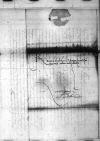⌊Sigismundus⌋ Dei gratia rex ⌊Poloniae⌋, magnus dux ⌊Lithuaniae⌋, ⌊Russiae⌋, ⌊Prussiae⌋, ⌊Masoviae⌋ etc. dominus et heres
Quae sint acta in ⌊Ungaria⌋ proximo superiore autumno, quam feliciter et ex animi sententia cesserint omnia crucis hosti potentissimo, quam fuerit nulla munitio tam fortis, quae viribus eius resistere potuerit, non est, procul dubio, Paternitati Vestrae inauditum. Quae pro sua prudentia, quid nobis ardente vicinia metuendum sit, intelligit; cum ne hoc quidem ignoret, quam parum foederibus fidendum sit, quae cum illo nobis intercedunt.
Nos officium nostrum requiri ab hominibus nostris nolentes ac pro virili nostra providere cupientes, quantum humano consilio provideri potest, ne ⌊regnum nostrum⌋ aliquid detrimenti caperet, sumus prospicere conati. Atque ea de causa maxime ⌊comitia regni nostri maiora⌋ ⌊Piotrcoviae⌋ ediximus, in quibus diligens haberetur consultatio, quemadmodum periclitanti regno nostro succurri posset. Cuius tuendi ratio inventa quidem est, sed quominus certi aliquid constitueretur, una ea res fuit impedimento, quod num eandem ad rationem ⌊terrae nostrae Prussiae⌋ consensurae essent, certi nihil habebamus neque absque illarum consensu statuendum nobis aliquid esse putabamus. Quare Paternitatem Vestram hortamur atque ab ea postulamus, ut ad ⌊comitia terrarum nostrarum Prussiae⌋, quae proxime ⌊Mariemburgi⌋ 1544-05-08⌊ad diem divo Stanislao in Maio sacrum1544-05-08⌋ habebuntur, se conferat, legationem nostram, quam consiliarii regni nostri per nos mittendi exponent, auditura, et de iis, quae imminent regno dicionibusque nostris, periculis una cum aliis terrarum nostrarum Prussiae consiliariis, quemadmodum ea propulsari possint, consilium initura, factura pro officio suo proque gratia nostra. Quae bene valeat.

